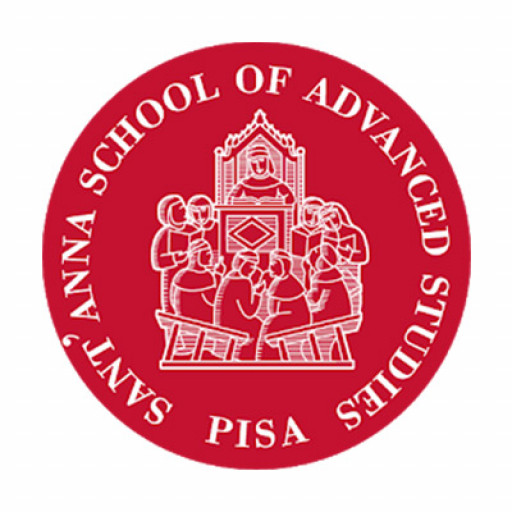Photos of university / #kul_university
The Biotechnology programme at The John Paul II Catholic University of Lublin offers a comprehensive education in the principles and applications of modern biotechnology. Designed to prepare students for dynamic careers in the life sciences, this programme combines theoretical knowledge with practical skills to meet the growing demands of the biotechnology, pharmaceutical, environmental, and agricultural industries. Throughout the course of study, students gain a solid foundation in biology, chemistry, genetics, molecular biology, and microbiology, allowing them to understand and manipulate biological systems at the cellular and molecular levels.
The curriculum emphasizes laboratory work, research projects, and internships that provide hands-on experience in cutting-edge techniques such as DNA/RNA manipulation, cell culture, protein analysis, bioinformatics, and bioprocess engineering. Students learn to apply biotechnological methods to solve real-world problems, including developing new drugs, improving crop yields, and managing environmental challenges. The programme also addresses ethical, legal, and social issues related to biotechnological advancements, fostering responsible research and innovation.
Faculty members are highly qualified researchers and practitioners who mentor students through individual and group projects, ensuring a high standard of scientific inquiry and creativity. The programme encourages interdisciplinary collaboration, integrating knowledge from biology, chemistry, informatics, and engineering to develop versatile professionals capable of working in multidisciplinary teams.
Graduates of the Biotechnology programme are prepared to pursue careers in research institutes, pharmaceutical companies, agricultural firms, environmental agencies, and academic institutions. They may also choose to continue their education through Master's or PhD studies to further specialize in specific areas of biotechnology. With a curriculum aligned with current industry trends and scientific advancements, this programme aims to equip students with the skills and knowledge necessary to contribute meaningfully to the rapidly evolving field of biotechnology.
The Bachelor’s Degree Programme in Biotechnology at The John Paul II Catholic University of Lublin is a comprehensive educational pathway designed to equip students with a broad understanding of biological sciences and their practical applications in various industries. The programme emphasizes the fundamental principles of biology, chemistry, and mathematics, providing a solid foundation for students to explore the diverse fields within biotechnology. Throughout the course, students will engage in rigorous theoretical coursework as well as hands-on laboratory experiences that foster practical skills essential for addressing real-world challenges in health, agriculture, environmental protection, and industry.
The curriculum covers essential topics such as molecular biology, genetic engineering, microbiology, biochemistry, and cell biology. Students will learn modern techniques including PCR, gel electrophoresis, and DNA sequencing, preparing them for careers in research, development, and quality control. Special modules focus on industrial biotechnology, bioprocess engineering, and the development of biopharmaceuticals, allowing students to understand and participate in the design and optimization of biotechnological processes.
In addition to scientific training, the program emphasizes the importance of ethical considerations and sustainable practices in biotechnology. Students are encouraged to analyze the social, legal, and environmental impacts of biotechnological advancements, fostering responsible innovation. The programme also includes internships and collaborative projects with industry partners, providing students with valuable industry insights and practical experience that enhances their employability after graduation.
Graduates of this programme will be prepared to pursue careers in pharmaceutical industries, agricultural biotech companies, environmental agencies, and research institutions. They will also be well-equipped to continue their education through master's and doctoral studies in related fields. The programme aims to develop not only specialized knowledge but also critical thinking, problem-solving skills, and ethical awareness, enabling graduates to contribute effectively to the advancement of biotechnology in Poland and globally.
The John Paul II Catholic University of Lublin's Biotechnology programme seeks to cultivate innovative and responsible scientists committed to improving health, agriculture, and sustainability through scientific excellence and ethical responsibility.
Faculty of Biotechnology and Environmental Sciences, Jon Paul II Catholic University of Lublin
The financing of the Biotechnology program at The John Paul II Catholic University of Lublin is primarily supported through a combination of domestic and European Union funding sources, tuition fees, and scholarships. The university actively seeks funding opportunities to ensure the quality and accessibility of the program. Students enrolling in the Biotechnology program have access to various financial aid options, including government grants and university scholarships aimed at promoting education in scientific fields. The university's strategic partnerships with industry stakeholders also facilitate sponsorships and internships that may include financial support for students. Tuition fees are set according to the university's regulations and may vary depending on whether the student is a domestic or international applicant. For residents of Poland and European Union countries, the fees are regulated, and some students may be eligible for subsidies or discounts, such as early registration discounts or need-based support. Non-EU students generally pay higher fees, but specific scholarship programs are available to aid their studies. In addition to tuition fees, students may receive funding through government programs designed to promote higher education in science and technology disciplines. The university participates in the Erasmus+ program, providing opportunities for students to undertake part of their studies abroad, which can include financial assistance. Furthermore, students are encouraged to seek external grants from scientific organizations and foundations committed to supporting education and research in biotechnology. The university also implements measures to ensure financial transparency and aims to keep the costs manageable to attract a diverse student body interested in advancing in the field of biotechnology. The exact funding amounts and detailed scholarship options are regularly updated and communicated through the university's official channels. Overall, the financial structure of the Biotechnology program is designed to support students throughout their studies and foster an environment conducive to scientific advancement and innovative research.
The Biotechnology program at the John Paul II Catholic University of Lublin offers students a comprehensive education in the rapidly evolving field of biological sciences, focusing on the application of technological advances in biology and chemistry to develop products and processes for various industries. The program aims to equip students with theoretical knowledge and practical skills necessary for careers in research, development, quality control, and production within sectors such as pharmaceuticals, agriculture, environmental protection, and food industry. Students study fundamental subjects including molecular biology, microbiology, biochemistry, genetics, and cell biology, alongside specialized courses in biotechnological methods, bioinformatics, genetic engineering, and industrial microbiology. The curriculum emphasizes laboratory work, fostering hands-on experience with modern biotechnological techniques, and promotes critical thinking, problem-solving, and innovative approaches. The program also highlights the importance of ethical issues related to biotechnology and promotes responsible research practices. Graduates are prepared to pursue further studies or employment in private companies, research institutes, or governmental agencies engaged in biotechnological research and development. Through collaboration with industry partners and participation in practical projects, students gain valuable insight into real-world applications of biotechnology. The program benefits from the university’s modern laboratories, experienced faculty, and a curriculum aligned with current scientific advancements and market needs. Upon completion, graduates receive a bachelor's degree in Biotechnology, opening pathways to diverse professional opportunities in science and industry. The university's commitment to integrating science and faith underscores a holistic approach toward education, emphasizing ethical considerations in technological development and fostering a responsible attitude towards scientific innovation.








